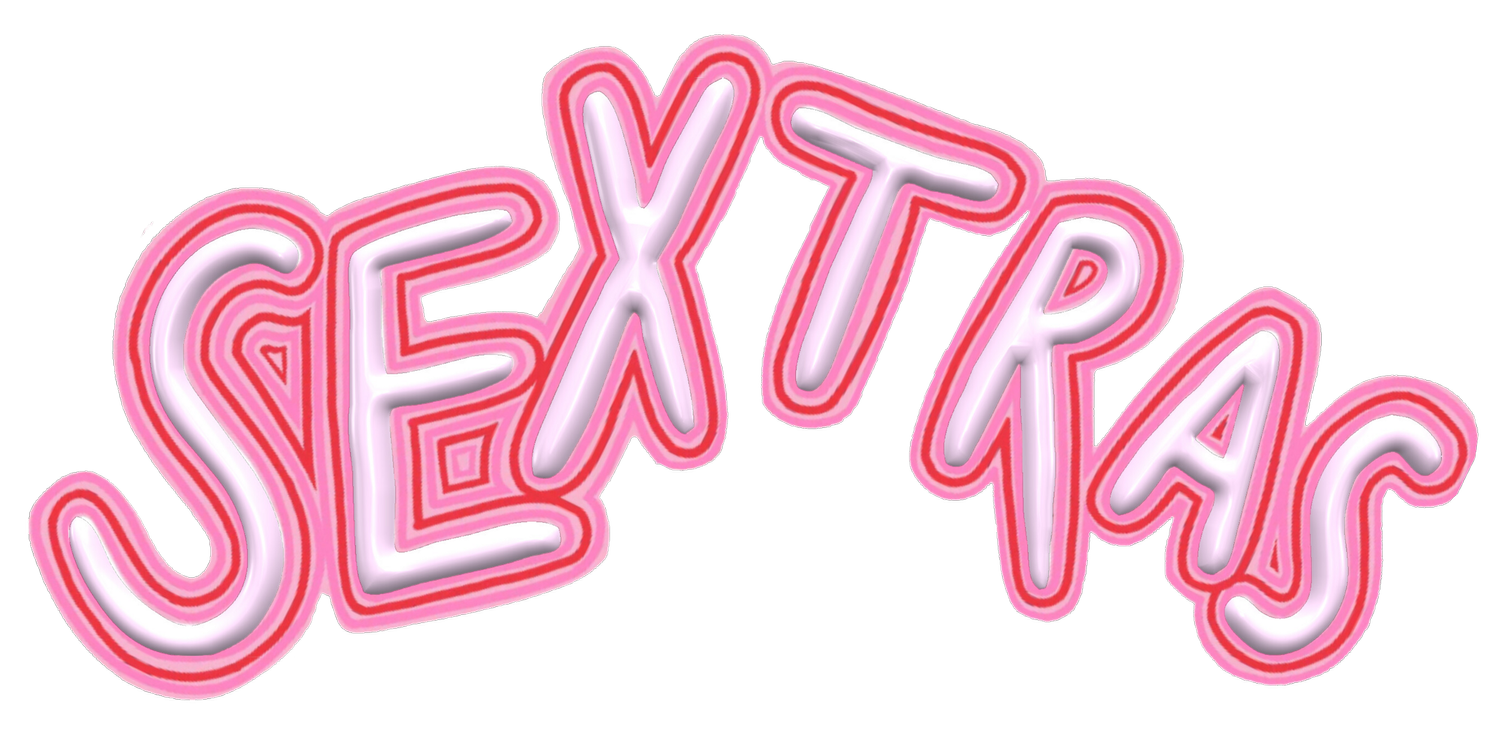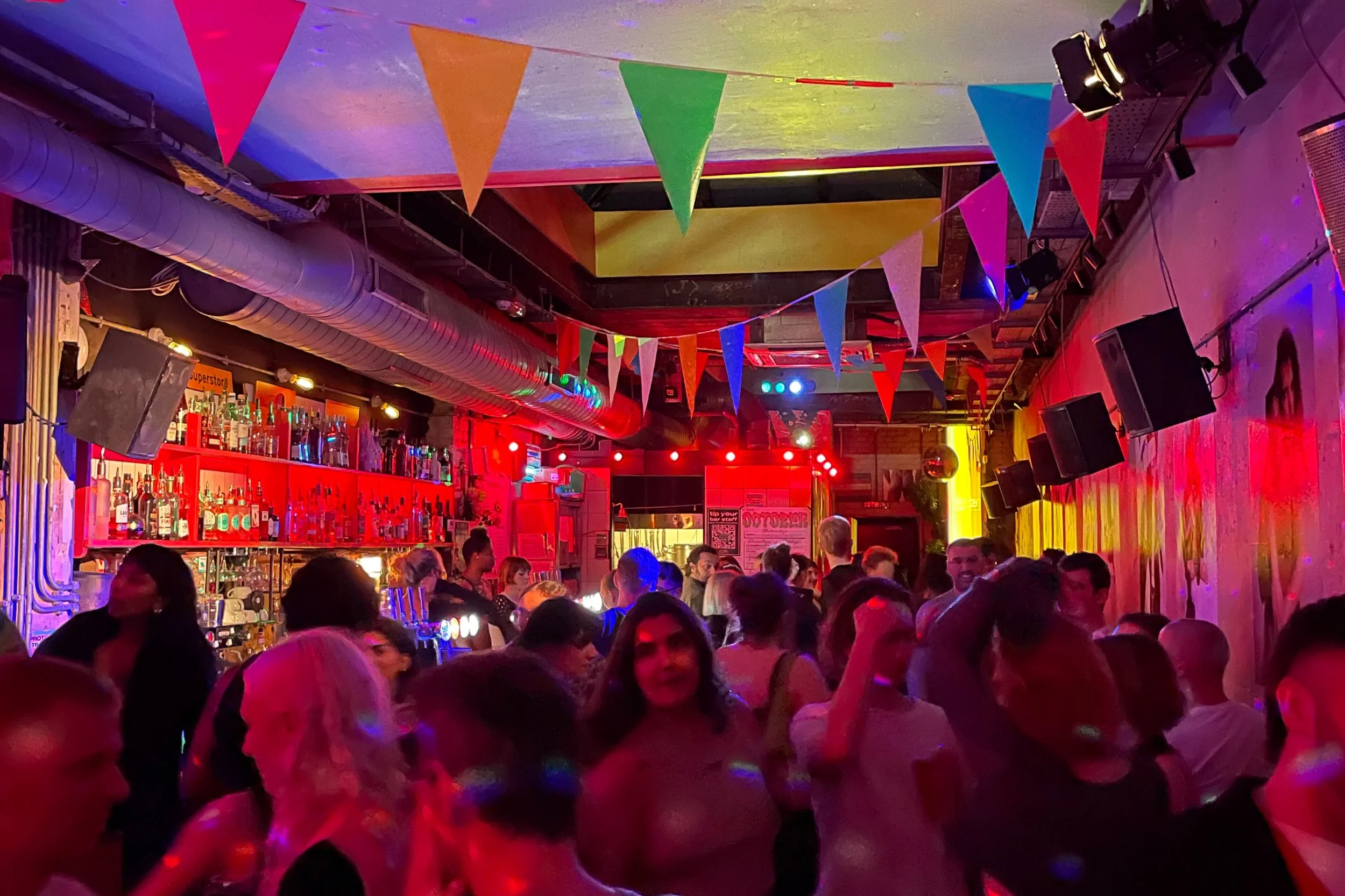Where are all the UK’s late night spaces?
For women and queer people, being out late at night is difficult enough. But when you don’t drink, or you just want somewhere to meet up with friends outside of your room, where do you go? Charlie Elizabeth Culverhouse explores the dire lack of third spaces in the UK, and how cafes could be the perfect spot. If only they stayed open.
Tuesday. 7pm. After working from home all day and saying not a word aloud to anyone but my dog, I’m in dire need of some fresh air, human contact, and a sweet treat. I trudge along the high street. Closed. Closed. Closed. I hit the end of the town centre. Of the 157 cafes in the town where I live, not one of them is open. I end up in the pub with a pint of coke (I’m nearly three years sober) and a packet of crisps.
It’s a scene anyone living outside of a bustling city centre will have experienced. You spontaneously want to do something, anything, interesting after 5pm that doesn’t involve alcohol or visiting a pub only to find it’s quite literally impossible. Still, I don’t hate pubs, they’re nice places to be. But that doesn’t mean they should be the only places to be. You’re incredibly limited when it comes to finding somewhere to relax with friends outside of the house, with pubs, bars and clubs being the only evening entertainment available unless you want to go to the cinema or fork out on a meal.
So why not just stay home? Because, simply, it’s boring and we need human interaction and spatial variation to live a healthy, happy life. According to the third space concept, developed by sociologist Ray Oldenburg, people need a third place that allows them to spend time away from home: their first place, and work, their second place, to build a strong sense of community, foster new friendships, and encourage creative interaction.
“The lack of safe late night spaces for women and LGBTQ+ people isolates them from their peers and has an adverse effect on their mental health”
In 1989 when Oldenburg shared his theory, there were plenty of third spaces to rely on. In his book The Great Good Place, he lists churches, cafes, bars, clubs, community centres, public libraries, gyms, bookstores, stoops, parks, and theatres as ideal third spaces. But in 2024, many of these spaces aren’t accessible, especially for women and the LGBTQ+ community. Either these spaces have been permanently closed due to lack of funding (churches, community centres, public libraries, theatres, LGBTQ+ friendly bars and clubs), or they’re now deemed generally unsafe, especially at night (stoops, parks, unfortunately, gyms and often clubs and bars) for these demographics.
“The lack of safe late night spaces for women and LGBTQ+ people can isolate these groups from their peers, therefore having an adverse effect on their mental health,” Eloise Skinner, a registered psychotherapist and author of But Are You Alive? tells me. “Even a low-level feeling of risk or insecurity within a third space or late night space can introduce feelings of exhaustion or burnout over time. It could also lead to anxiety, high levels of stress or adrenaline, and reduce the likelihood of building safe, supportive relationships.”
It may seem dramatic for those who don’t share the same lived experience as women and LGBTQ+ people, but the pub doesn’t always feel like a safe space. Nowhere really feels like a safe space at night time.
In 2021, as uncovered by Time Out, reports of sexual assault against women in London night life venues hit a six-year high, with an average of four women being sexually assaulted – and reporting it – every single week. While there has been no more data of this kind released since, with police receiving more than 20,000 reports of spiking in the last five years alone, there is no option but to be cautious of these spaces. The stats are equally bleak for the LGBTQ+ community. In the last five years, hate crimes against gay, lesbian and bisexual people rose by 112% while hate crimes against trans people rose by 186%.
We need somewhere safe to go, but there is nowhere. Since 2006, 58% of London’s LGBTQ+ venues, which are often also frequented by women looking for a safer night out, have closed.
But it’s not just women and LGBTQ+ people suffering from the lack of sober third spaces. According to Eloise, pubs and clubs aren’t the healthiest spaces for anyone to rely on. “An alcohol-fuelled environment can reduce feelings of safety or security and can also introduce an element of risk into a third space activity. Building relationships can be an important way to define and explore identity, values and personal preferences. Doing this in an environment that feels safe and inclusive is especially important – and spaces that prioritise alcohol can complicate the situation.”
“While men are just as likely to visit cafes to grab a drink, women are more likely to spend several hours multiple times a week in a coffee shop”
We’re back at the start again. So where do we go?
Looking outside the UK, we might find our answer. Especially in Europe, late night cafe culture is booming. It’s only us in the west who seem to start the day with a coffee and pastry, everyone else is heading out as the sun goes down to warm up with some caffeine. Many European cafes cater to the caffeine-addicted well into the night, with many bakeries and cafes keeping their doors open until midnight alongside clubs and bars. So why don’t we do the same?
Cafes are already a space beloved by both women and the LGBTQ+ community in the UK and we know this not only because of the plethora of girls and gays using TikTok to share their dream of opening a coffee shop that also sells books,plants,cottagecore knicknacks. It was recently found that cafes are one of the most prominent employers of LGBTQ+ people in the UK and, while men are just as likely to visit cafes to grab a drink, women are more likely to spend several hours (often multiple times a week) in a coffee shop, adopting cafes as their third space.
This love is not only brought on by a lack of other safe spaces but also the surprisingly thoughtful layout of many of these coffee shops, with the BBC crediting cafes’ trendy open-plan layouts and huge storefront windows as creating a more welcoming and safe atmosphere for these demographics.
If we can petition any of them to keep their doors open, cafes could be the solution to our late night woes. Put the feelers out there the next time you order a chai latte. Band together with friends to show baristas the impact they could have on your town. Whatever you do, don’t copy my Tuesday evening antics and bang on the windows of a closed cafe ‘just in case’ they might open up and serve you. I promise it won’t work.


